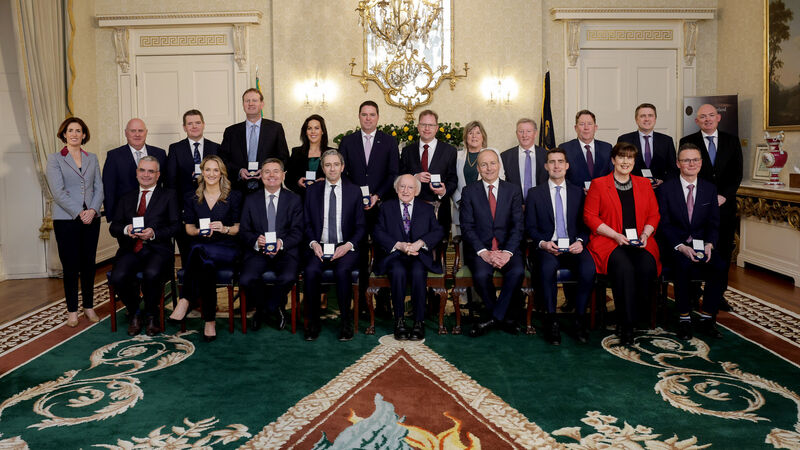Pa Daly: Why Sinn Féin is challenging the Government on super junior ministers

President Michael D Higgins (centre), the Taoiseach Micheál Martin, Tánaiste Simon Harris and the new Cabinet receive their Seal of Office at a ceremony held in Aras an Uachtarain in January. File picture: Maxwell’s
This week I will bring a constitutional challenge against the Government in the High Court regarding the appointment of super junior ministers.
The case challenges what I believe is a deeply problematic and unconstitutional practice that has taken root in recent decades - the attendance and participation of so-called super junior ministers at meetings of the Government.













